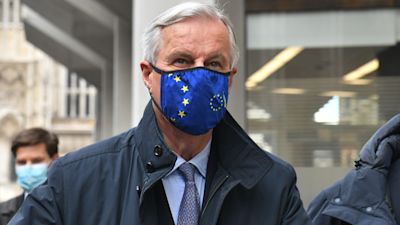Brexit: What is the EU’s real bottom line for free trade deal?

There is a ton of contradictory stuff flying around about what Michel Barnier says is the EU's bottom line for fair competition in any free trade agreement with the UK.
As I understand it, what follows is the EU's position.
For the "level playing field commitments" there should be "non regression" - ie on standards for working practices, environmental etc, the UK must stick to current EU rules, subject to tests and the risk of legal challenge if there is a perceived breach of the obligations.
And the non-regression rules apply to the EU as well as to the UK. They are mutual symmetrical obligations in that sense.
The requirements not to give unfair subsidies to businesses, the state aid rules, are different, and more complicated, because subsidies to businesses given out of EU funds (as opposed to national funds) are not subject to state aid rules.
So Barnier is proposing a solution to that "UK problem", such that the state obligations would be seen to bind both the UK and the EU.
The big point is that Barnier seems to be trying hard to create a framework in which the obligations to engage in fair competition bind both the UK and the EU, and are not simply the big bad EU imposing its will on the UK.
The baseline for both at the start of any free trade agreement would be the same, and subject to the same processes to prevent unfair competition in the future.
And just to be clear, the UK currently meets and follows all these standards, for the obvious reason we were members of the EU for 40 years, and actually and actively promoted these standards.
What is more, Boris Johnson cannot name a single EU level-playing-field standard he currently wishes to weaken. If there is a power imbalance between a newly independent UK and the EU it is simply that the EU single market is vastly bigger than the UK's internal market.
Which in turn means that the EU will always have more clout when setting trading standards than does the UK. But that's just a basic economic fact. And to complain about it is the same as complaining that the sun will set or the tide will come in.
The EU has worked out it can rely on its disproportionate economic clout to shape whatever future trading standards it wants, and has backed off insisting that the European Court of Justice would have a role in determining whether UK companies are trading unfairly.
Which looked like a significant political victory for Johnson and Lord David Frost, though for some reason they are ill-inclined to recognise their win.
But here is the actual final point: the EU's disproportionate economic power won't vanish if there is no free trade agreement and the UK finds itself subject to tariffs and World Trade Organisation rules for its exports to and imports from the EU.
For UK businesses to make up for a loss of competitiveness in trade with the EU that would be the consequence of the imposition of no-deal tariffs, and the absence of trusted trader schemes, and so on, it would require the government to slash environmental and employment burdens on those businesses - which is precisely the opposite of what the PM says he wants.
Johnson tells us time and again the UK would thrive without an EU trade deal. Presumably one of these days he will present his detailed credible route map to those sunlit uplands.